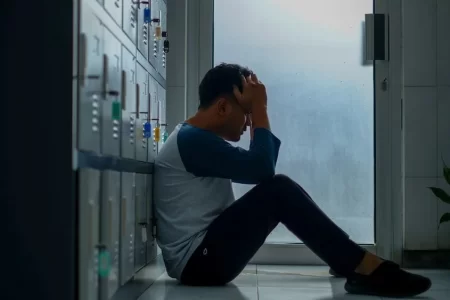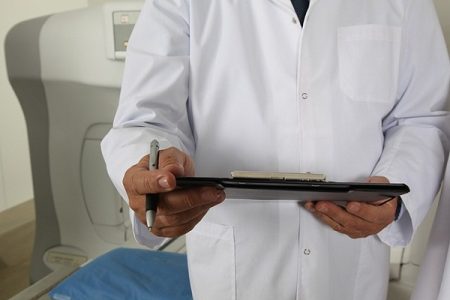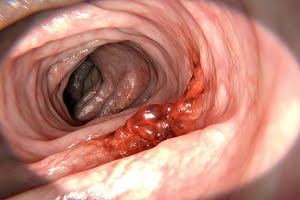5 Common Symptoms of Advanced Hemorrhoids: What to Look For
- Updated on: Jul 11, 2024
- 4 min Read
- Published on Dec 23, 2023

Hemorrhoids, also known as piles, are a common condition affecting millions worldwide. While many cases of hemorrhoids can be mild and resolve on their own, it’s crucial to recognize the symptoms of advanced hemorrhoids, as they often require more comprehensive treatment.
Understanding Hemorrhoids
Before discussing the symptoms, it’s important to understand what hemorrhoids are.
Hemorrhoids are swollen veins in the lower rectum and anus, similar to varicose veins. They can develop inside the rectum (internal hemorrhoids) or under the skin around the anus (external hemorrhoids).
Causes of Hemorrhoids
Several factors contribute to the development of hemorrhoids, including straining during bowel movements, chronic constipation or diarrhea, obesity, pregnancy, and prolonged sitting, especially on the toilet.
Symptoms of Advanced Hemorrhoids
The risks of ignoring severe hemorrhoids are underscored by the fact that, in the early stages, they may present mild symptoms or even go unnoticed. Advanced hemorrhoids often cause more noticeable and uncomfortable signs. Here are five common symptoms to look out for:
1. Pain and Discomfort
One of the most significant indicators of advanced hemorrhoids is persistent pain and discomfort, especially during bowel movements or when sitting. The pain can range from a mild, annoying ache to severe discomfort. External hemorrhoids, which are more likely to become irritated and painful, can exacerbate this symptom.

2. Bleeding
Bleeding during bowel movements is a hallmark symptom of hemorrhoids, particularly with internal hemorrhoids. The blood is usually bright red and can be noticed on toilet paper or in the toilet bowl. While bleeding may be alarming, it’s important to note that it’s typically not associated with severe pain. However, any rectal bleeding should be evaluated by a healthcare provider to rule out other more serious conditions.
3. Swelling Around the Anus
Advanced hemorrhoids can cause noticeable swelling or a lump near the anus, which can be particularly evident with external hemorrhoids. This swelling can be uncomfortable and may make cleaning after a bowel movement more challenging.
4. Prolapse
In more severe cases, internal hemorrhoids may prolapse, or extend beyond the anus, causing noticeable bulging, discomfort, and pain. Prolapsed hemorrhoids can be felt outside of the anus and may require gentle pushing back inside after a bowel movement.
5. Itching and Irritation
The presence of excess moisture, discharge, or irritation caused by hemorrhoids can lead to an itchy sensation around the anus. This symptom is often associated with both internal and external hemorrhoids and can be quite distressing for patients.
The Risks of Ignoring Severe Hemorrhoids
Diagnosis of Hemorrhoids
If you suspect you have hemorrhoids, especially if the symptoms are consistent with advanced stages, it’s important to get a proper diagnosis. A healthcare provider will perform a physical examination, and in some cases, additional tests like an anoscopy, sigmoidoscopy, or colonoscopy may be required to rule out other causes of your symptoms.
Treatment Options
Treatment for advanced hemorrhoids depends on the severity of the symptoms and the type of hemorrhoids. Options include:
Lifestyle Changes: Dietary modifications to include more fiber, increased water intake, and regular exercise can help reduce symptoms.
Medications: Over-the-counter creams, ointments, or suppositories may offer relief.
Minimally Invasive Procedures: For persistent or severe hemorrhoids, procedures like rubber band ligation, sclerotherapy, or infrared coagulation might be recommended.
Surgery: In cases where other treatments are ineffective, surgical options such as hemorrhoidectomy or hemorrhoid stapling are considered.
Preventive Measures
Preventing hemorrhoids is often possible with lifestyle changes:
Diet: Eating a high-fiber diet and drinking plenty of water can prevent constipation, a major cause of hemorrhoids.
Exercise: Regular physical activity can reduce pressure on veins, which can occur with prolonged sitting or standing.
Bowel Habits: Avoid straining during bowel movements and don’t wait to go when you feel the urge.
The bottom line
Recognizing the symptoms of advanced hemorrhoids is key to seeking timely medical intervention and relief. If you experience any of these symptoms, consult with a healthcare provider for a proper diagnosis and treatment plan. Remember, while hemorrhoids are common, suffering from them is not something you have to endure silently. Effective treatments are available, and lifestyle changes can make a significant difference in both treating and preventing this condition.
FAQs
What are the early signs of advanced hemorrhoids?
Advanced hemorrhoids may manifest with symptoms like persistent bleeding, protruding hemorrhoids, and discomfort during bowel movements. Early detection allows for timely intervention.
Can advanced hemorrhoids cause severe pain?
Yes, advanced hemorrhoids can cause intense pain, especially during activities like sitting or bowel movements. Managing symptoms promptly is crucial to prevent further discomfort.
Are there lifestyle changes to alleviate advanced hemorrhoid symptoms?
Absolutely, adopting a high-fiber diet, staying hydrated, and practicing good hygiene can significantly ease symptoms of advanced hemorrhoids and promote overall rectal health.
How is the severity of advanced hemorrhoids diagnosed?
Diagnosis involves a thorough examination by a healthcare professional. Procedures like anoscopy or sigmoidoscopy may be recommended to assess the extent and severity of advanced hemorrhoids.
Is surgery the only treatment for advanced hemorrhoids?
While surgery may be an option for severe cases, less invasive treatments like rubber band ligation or sclerotherapy are often effective. The choice depends on the specific condition and the patient's preferences.












